Search
Did you mean: Neith?
Summary 
Loading AI-generated summary based on World History Encyclopedia articles ...
Search Results

Article
Death in Ancient Egypt
To the ancient Egyptians, death was not the end of life but only the beginning of the next phase in an individual's eternal journey. There was no word in ancient Egyptian which corresponds to the concept of "death" as usually defined, as...
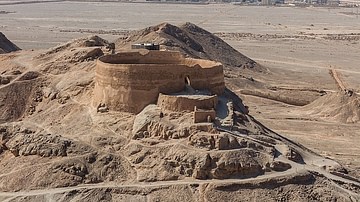
Article
Death and the Afterlife in Ancient Persia
A vision of the afterlife is articulated by every culture, ancient or modern, in an effort to answer the question of what happens after death. Ancient Persia had the same interest in this as any culture of the past or in the present day and...

Article
Death of Alexander the Great
In June of 323 BCE, Alexander the Great (r. 336-323 BCE) died in Babylon. His sudden death before his 33rd birthday has long been a point of speculation: was it disease, old wounds, or murder? Regardless of the cause, history ranks him as...
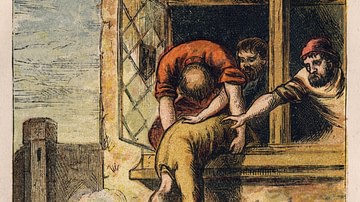
Article
Death of Admiral Coligny
The assassination attempt on Gaspard II de Coligny, Admiral of France (l. 1519-1572) on 22 August 1572 was the spark igniting the St. Bartholomew's Day Massacre beginning on 24 August and continuing in Paris for the next five days and elsewhere...
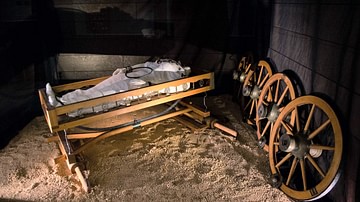
Article
Death, Burial & the Afterlife in the Ancient Celtic Religion
The ancient Celts who occupied large parts of Europe from 700 BCE to 400 CE displayed a clear belief in an afterlife as evidenced in their treatment of the dead. In the absence of extensive written records by the Celts themselves, we are...
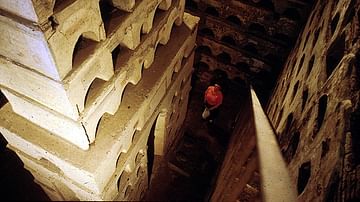
Article
Death's Mansions: The Columbaria of Imperial Rome
A columbarium is an underground chamber, which the Romans used for preserving the ashes of the dead. During the 1st and 2nd centuries CE, hundreds of columbaria lined the consular highways leading out of Rome, although now only some two dozen...
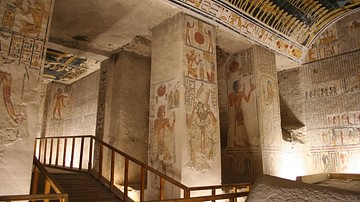
Collection
Death and the Afterlife in the Ancient World
Belief in an afterlife was common in the ancient world, as it is today, and each culture created its own unique vision of the land that existed beyond the grave. Even with their differences, there are many similarities, including a concept...
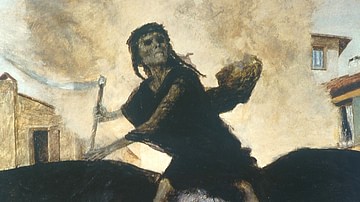
Definition
Black Death
The Black Death was a plague pandemic that devastated medieval Europe from 1347 to 1352. The Black Death killed an estimated 25-30 million people. The disease originated in central Asia and was taken to the Crimea by Mongol warriors and traders...

Article
Kiowa Death-Origin Myth: Two Versions
The Kiowa nation has at least two different versions of their origin myth concerning death: How Death Came into the World and Why the Ant is Almost Cut in Two. Both explain the origin of death but differ significantly in characterization...

Article
Effects of the Black Death on Europe
The outbreak of plague in Europe between 1347-1352 – known as the Black Death – completely changed the world of medieval Europe. Severe depopulation upset the socio-economic feudal system of the time but the experience of the plague itself...